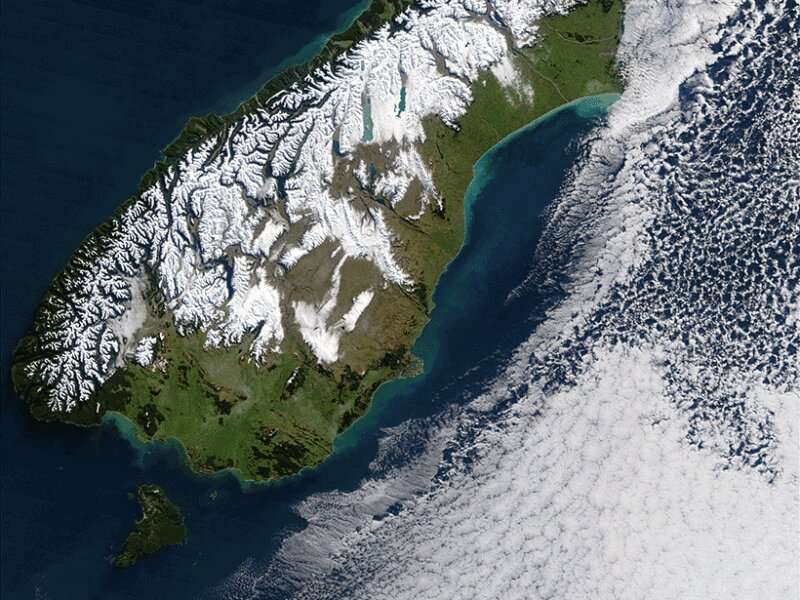Subduction initiation may depend on a tectonic plate's history

Subduction zones are cornerstone components of plate tectonics, with one plate sliding beneath another back into Earth's mantle. But the very beginning of this process—subduction initiation—remains somewhat mysterious to scientists because most of the geological record of subduction is buried and overwritten by the extreme forces at play. The only way to understand how subduction zones get started is to look at young examples on Earth today.
In a new study, Shuck et al. used a combination of seismic imaging techniques to create a detailed picture of the Puysegur Trench off the southwestern coast of New Zealand. At the site, the Pacific plate to the east overrides the Australian plate to the west. The Puysegur Margin is extremely tectonically active and has shifted regimes several times in the past 45 million years, transitioning from rifting to strike-slip to incipient subduction. The margin's well-preserved geological history makes it an ideal location to study how subduction starts. The team's seismic structural analysis showed that subduction zone initiation begins along existing weaknesses in Earth's crust and relies on differences in lithospheric density.
The conditions necessary for the subduction zone's formation began about 45 million years ago, when the Australian and Pacific plates started to pull apart from each other. During that period, extensional forces led to seafloor spreading and the creation of new high-density oceanic lithosphere in the south. However, in the north, the thick and buoyant continental crust of Zealandia was merely stretched and slightly thinned. Over the next several million years, the plates rotated, and strike-slip deformation moved the high-density oceanic lithosphere from the south to the north, where it slammed into low-density continental lithosphere, allowing subduction to begin.
The researchers contend that the differences in lithospheric density combined with existing weaknesses along the strike-slip boundary from the previous tectonic phases facilitated subduction initiation. The team concludes that strike-slip might be a key driver of subduction zone initiation because of its ability to efficiently bring together sections of heterogeneous lithosphere along plate boundaries.
More information: Brandon Shuck et al, Strike‐Slip Enables Subduction Initiation Beneath a Failed Rift: New Seismic Constraints From Puysegur Margin, New Zealand, Tectonics (2021). DOI: 10.1029/2020TC006436
Provided by American Geophysical Union
This story is republished courtesy of Eos, hosted by the American Geophysical Union. Read the original story here.





















